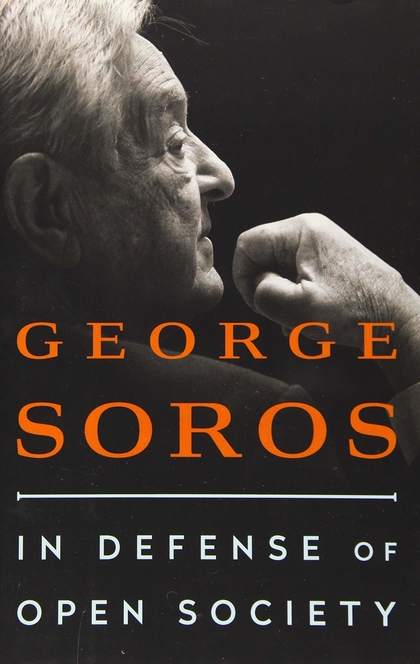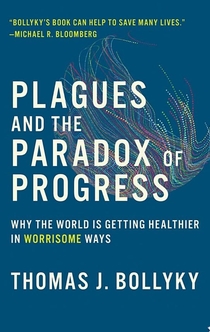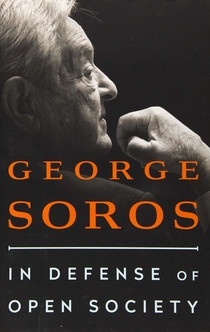
Books Bill Gates is CURRENTLY Reading
0
likes

Plagues and the Paradox of Progress
Why the news about the global decline of infectious diseases is not all good.Plagues and parasites have played a central role in world affairs, shaping the evolution of the modern state, the growth of cities, and the disparate fortunes of national economies. This book tells that story, but it is not about the resurgence of pestilence. It is the story of its decline. For the first time in recorded history, virus, bacteria, and other infectious diseases are not the leading cause of death or disability in any region of the world. People are living longer, and fewer mothers are giving birth to many children in the hopes that some might survive. And yet, the news is not all good. Recent reductions in infectious disease have not been accompanied by the same improvements in income, job opportunities, and governance that occurred with these changes in wealthier countries decades ago. There have also been unintended consequences. In this book, Thomas Bollyky explores the paradox in our fight against infectious disease: the world is getting healthier in ways that should make us worry. Bollyky interweaves a grand historical narrative about the rise and fall of plagues in human societies with contemporary case studies of the consequences. Bollyky visits Dhaka--one of the most densely populated places on the planet--to show how low-cost health tools helped enable the phenomenon of poor world megacities. He visits China and Kenya to illustrate how dramatic declines in plagues have affected national economies. Bollyky traces the role of infectious disease in the migrations from Ireland before the potato famine and to Europe from Africa and elsewhere today. Historic health achievements are remaking a world that is both worrisome and full of opportunities. Whether the peril or promise of that progress prevails, Bollyky explains, depends on what we do next.A Council on Foreign Relations Book
See all

Outbreak Culture
The award-winning genetic researcher who helped tame the Ebola epidemic pairs up with a prize-winning journalist to tell the story of what happened and what would have to change to prevent the next outbreak from spiraling out of control. At the height of the Ebola outbreak in West Africa, as thousands succumbed to the horrors of the disease, a prominent physician working in Sierra Leone, Sheikh Humarr Khan, became infected with the virus and died. As Pardis Sabeti and Lara Salahi show, much more could have been done within the medical community and among international actors not only to protect this renowned infectious disease expert but also to safeguard the well-being of his patients and others affected by this devastating disease. Written by an award-winning genetic researcher and a tenacious journalist, Outbreak Culture examines each phase of the epidemic--the largest and deadliest Ebola outbreak to date--and identifies the factors that kept key information from reaching physicians and complicated the response to the crisis. Drawing insights from clinical workers, data collectors, organizational experts, and public health researchers, Sabeti and Salahi expose a fractured system that failed to share knowledge of the virus and ensure containment. Secrecy, competition, and poor coordination plague nearly every major epidemic. Conducted with fearless scrutiny and unassailable expertise, this postmortem of the Ebola crisis seeks to change the culture of international responders, which has left us acutely unprepared for the next major outbreak.
See all

In Defence of Open Society
'Soros has become a standard bearer for liberal democracy' Financial TimesGeorge Soros - universally known for his philanthropy, progressive politics and investment success, and now under sustained attack from the far right, nationalists, and anti-Semites around the world - gives an impassioned defence of his core belief in open society.George Soros is among the world's most prominent public figures. He is one of the history's most successful investors and his philanthropy, led by the Open Society Foundations, has donated over $14 billion to promote democracy and human rights in more than 120 countries. But in recent years, Soros has become the focus of sustained right-wing attacks in the United States and around the world based on his commitment to open society, progressive politics and his Jewish background. In this brilliant and spirited book, Soros offers a compendium of his philosophy, a clarion call-to-arms for the ideals of an open society: freedom, democracy, rule of law, human rights, social justice, and social responsibility as a universal idea. In this age of nationalism, populism, anti-Semitism, and the spread of authoritarian governments, Soros's mission to support open societies is as urgent as it is important.
See all






